How to Find E-commerce Clients: 8 Tips for Agency Success!
Global sales are expected to skyrocket to $6.8 billion by 2025; for e-commerce businesses and e-commerce marketing agencies, this is an incredible opportunity to grow! However, it’s not always easy to stand out and attract e-commerce clients in such...

Global sales are expected to skyrocket to $6.8 billion by 2025; for e-commerce businesses and e-commerce marketing agencies, this is an incredible opportunity to grow! However, it’s not always easy to stand out and attract e-commerce clients in such a growing area.
So, how do you grab their attention? How can you win their trust and convert them into long-term partners?
The answer lies in this post but before that, here’s a quick preview of what you’ll learn:
Platforms like Digital Agency Network Marketplace immediately connect you with e-commerce clients who actively seek marketing help. Personalized emails are 6 times more effective than generic ones, making tailored outreach a critical strategy. TikTok is the new Google! Nearly half of Gen Z prefers TikTok over Google when searching for products or services. 92% of consumers trust referrals, so offering rewards for recommendations can grow your client base. 79% of smartphone users make purchases on mobile, so having a mobile-responsive, SEO-optimized site is a must.Now it’s time to take you through 8 actionable steps to help you find e-commerce clients.
Get to Know the E-commerce Market Inside Out 🔬 Turn Your Online Presence into a Lead Magnet 🧲 Benefit from Marketplaces 🌟 Master Personalized Cold Outreach (😬 No one likes spam!) Fuel Your Growth with Social Media 🚀🚀 Offer Free Consultations or Audits (🥰 Who can say no to free advice?) Find E-Commerce Clients at Conferences & Events 🤝 Build Trust with Referral Marketing Magic 🪄🎩1. Get to Know the E-commerce Market Inside Out 🔬
E-commerce businesses differ greatly from traditional retailers, with concerns like:
Cart abandonment Mobile optimization Product descriptions for SEO Product descriptions for sales Global scalabilityResearch and data are your best friends here. Look into trends such as the rise of mobile shopping, voice search, and the increasing use of artificial intelligence for personalization.
Data-driven insights can give your agency an edge over competitors.
For example, e-commerce companies that personalize the shopping experience see an average revenue increase of 20%. Also, HBR (Harvard Business Review) found that businesses using data-driven marketing are 6 times more likely to be profitable year after year.
So, you must know how to gather and analyze data to offer personalized, effective strategies for e-commerce clients.
Only this way can you show that your agency is an informed partner ready to drive real results.
2. Turn Your Online Presence into a Lead Magnet 🧲
Your website is often the very first point of contact potential e-commerce clients will have with your e-commerce agency. Make sure that it leaves the right first impression.
Your website should be optimized for SEO with numerous keywords like “e-commerce marketing agency”.
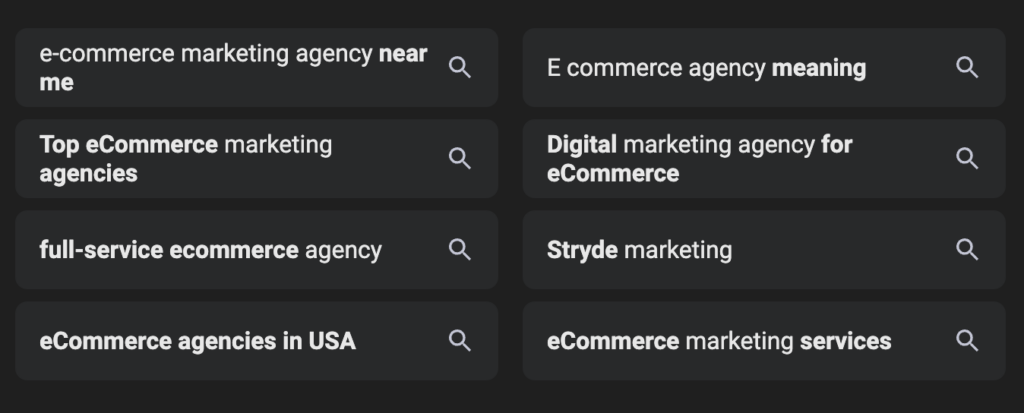
You can share blog posts targeting the right keywords to set yourself apart from the competition and build your authority in the field.
For instance, if your main niche is e-commerce branding, you might consider using keywords such as “e-commerce branding strategies” after assessing their volume and difficulty with SEO tools.
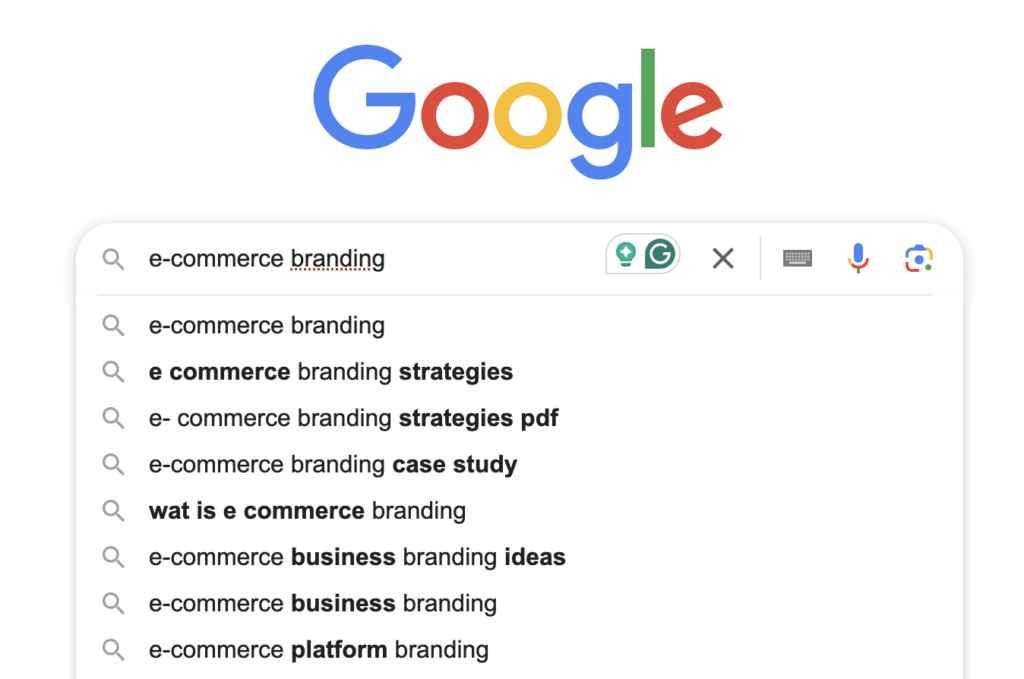
Sharing your expertise in blogs can be optional, but you should definitely share your e-commerce marketing case studies to tell your success stories loud and clear. (And demonstrate some of them on your homepage!)
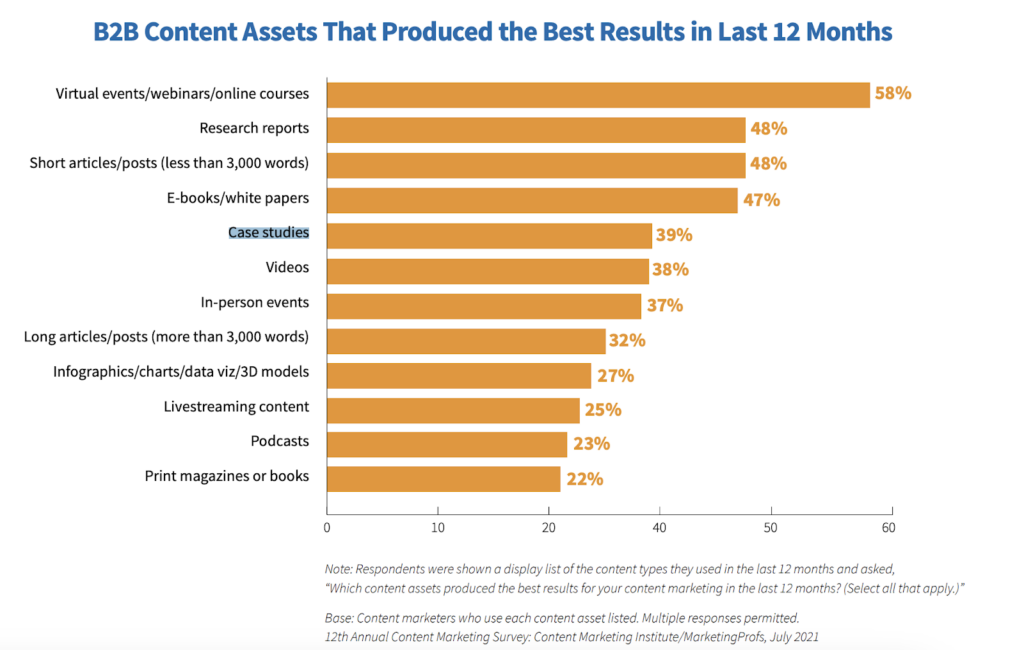
Source: Content Marketing Institute
Don’t forget the power of visuals, as photos, videos, and infographics that highlight your successful campaigns can really make your content pop. (To see if you are on the right track crafting your case studies, check out our blog post giving pro tips for digital agencies!)
In addition to SEO and showcasing your success stories, your agency’s website needs to look professional, load quickly, and be mobile-friendly.
Here’s what it must include:
Professional design reflecting your brand Fast loading speeds Easy navigation Clear calls-to-action Client testimonials for trust SEO-optimized pages Visible contact info for leads Mobile-friendly and responsive layoutSpeaking of mobile-friendliness, statistics show that 79% of smartphone users have made a purchase online using their mobile device in the last six months, so having a mobile-responsive site is a must.
3. Benefit from Marketplaces 🌟
Getting your e-commerce agency in front of potential e-commerce clients can be as simple as leveraging marketplaces like Digital Agency Network (DAN).
Let them come to you!
Take DAN Marketplace, for instance. It’s built to match digital marketing agencies with brands looking for help across all areas of digital marketing. Easy connections, right where you need them.

With DAN Marketplace, you can submit proposals directly to projects posted by e-commerce companies, saving you time, and getting you in front of decision-makers who are actively seeking marketing expertise.
4. Master Personalized Cold Outreach (😬No one likes spam!)
Never underestimate the power of cold outreach. It is still one of the key answers to how to find e-commerce clients, but only when it’s done right.
For example, here’s how Alex Cattoni doubles the open rates:
So, sending out generic emails won’t cut it. Instead, you should do your homework and craft personalized outreach emails that speak directly to a prospect’s specific needs and challenges. (Personalized emails have a transaction rate 6 times higher than generic ones!)
Always address their pain points and tell them how you can fix them. Mention what you know about their business. Don’t forget to “be human”. Explain what you have done in the past for their niche with data-proven results. Grab their attention with the subject line; below you can learn from Instantly’s YouTube video where they analyze 195 cold mail subject lines.
The best medium to have deep connections with your audience is social media.
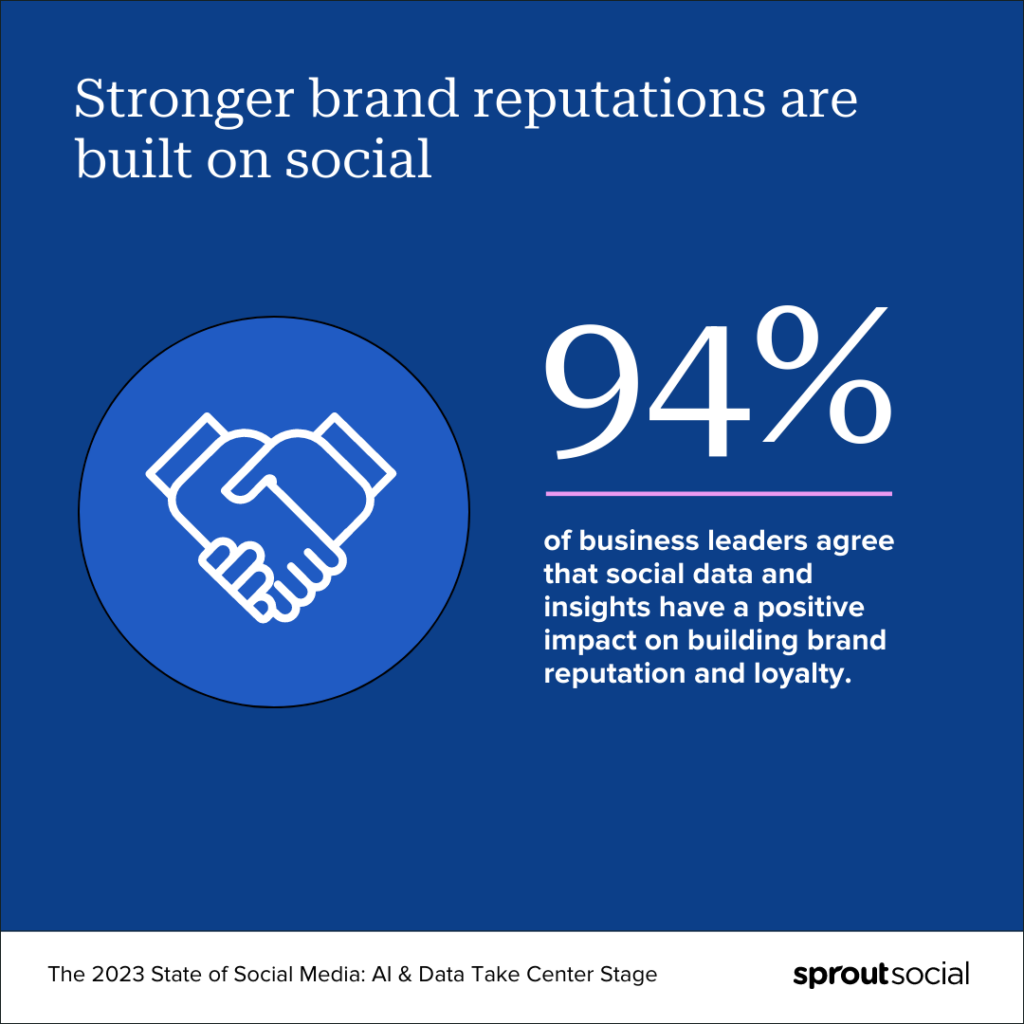
Source: sproutsocial
Here’s what you can (and should) do on different platforms to contribute to your e-commerce branding:
Show off your expertise and success stories on LinkedIn. (They’ll spark conversation; get ready to reply to all those comments asking questions!) TikTok is like the new Google. Use it wisely! No need to dance—unless you can combine it with your niche—but do share your deep dives into e-commerce marketing strategies. Here’s an example: On Instagram, you can share “A Day of a Marketer” reels for high engagement or eye-catching infographics that break down your success to build yourself as an authority. Create informative and insightful threads on X like Aleyda Solis does.I've expanded the Ecommerce Product Page Optimization Checklist, Templates & Cheat Sheet to help you optimize further your Ecommerce Product Content with two new useful resources 👇
* Ecommerce PDP Content Benchmark: Identify the content areas your site is lacking of vs main… pic.twitter.com/wVre7hpRYx
Don’t forget to use industry-specific hashtags such as #ecommercemarketing and #ecommerceagency or include them as keywords in your caption, post, etc. if you want to be visible.
6. Offer Free Consultations or Audits (🥰Who can say no to free advice?)
Offering free consultations or audits is one of the smartest moves you can make to show off your agency’s expertise to e-commerce businesses. It gives you a chance to provide personalized insights and prove the real value your agency can bring to the table.
What you should include in an e-commerce audit:
Website Performance Review: This checks things like site speed, mobile compatibility, and overall user experience. (40% of users will abandon a website if it takes longer than three seconds to load.) SEO Audit: You can assess how well the site ranks for key e-commerce terms, look at on-page SEO, and recommend ways to improve keyword optimization. Content Marketing Assessment: You should review their content strategy across blogs, emails, and social media, offering suggestions to boost engagement and conversions. Paid Advertising Audit: Analyze their Google or Facebook ad campaigns to make sure they’re getting the best ROI possible.7. Find E-Commerce Clients at Conferences & Events 🤝
It’s all about who you know!
Attending e-commerce conferences and networking events is one of the best strategies you can use to connect with potential clients and build lasting relationships.
At these events, you’ll have the chance to get face-to-face time with decision-makers from e-commerce brands who are actively looking for marketing support.
Top conferences you should consider:
eCommerce Expo: This UK-based event draws a global audience, giving you plenty of opportunities to network and gain insights. E-commerce Summit: In this event, you can expect to hear about AI-powered personalization, omnichannel orchestration, sustainability, and the TikTok economy. NRF’s Big Show: Hosted by the National Retail Federation, this event brings together top leaders in both retail and e-commerce. You’ll have the perfect opportunity to meet executives from brands of all sizes.8. Build Trust with Referral Marketing Magic 🪄🎩
When your clients are happy, they’ll naturally want to recommend you, and with a little incentive, they’re even more likely to do so.
And why is this referral marketing one of the simplest ways to find e-commerce leads?
People trust recommendations from those they know. In fact, 92% of consumers rely on referrals, according to Nielsen.
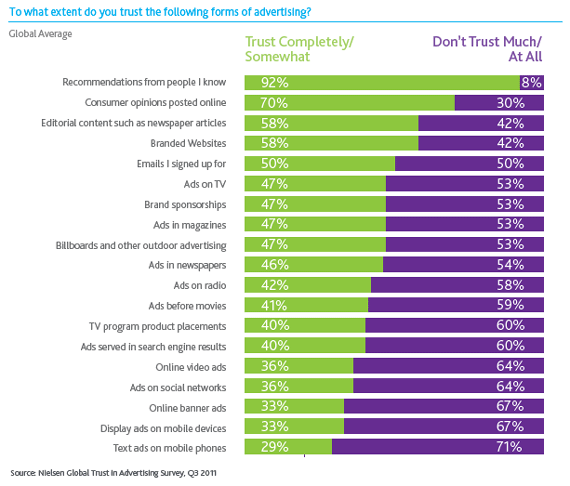
Source: Consumer Trust in Online, Social and Mobile Advertising Grows
So, when an e-commerce business hears about your agency from someone they trust, they’re much more likely to reach out, and this builds trust from the very start.
To be successful in referral marketing, you should:
Offer discounts, free services, or even cash. You should send campaign emails to your clients explaining how they can benefit from referring others. Make sure you have an easy system to track who’s sending you leads, so you don’t miss rewarding loyal clients.You’re Ready to Get New E-commerce Clients!
Congratulations! You now have eight solid, actionable strategies to understand how to find e-commerce clients.
By optimizing your online presence for Google and curious minds, leveraging directories and marketplaces, and crafting personalized outreach, your agency is set to grow.
Don’t forget to also build relationships through social media, offer free consultations or audits, and attend key industry events.
With these strategies, you will be able to find new e-commerce clients but also foster long-lasting relationships that can lead to ongoing collaboration.
Now, it’s time to put these tips into action and start growing your e-commerce client base. You’ve got this!

 JimMin
JimMin 
































